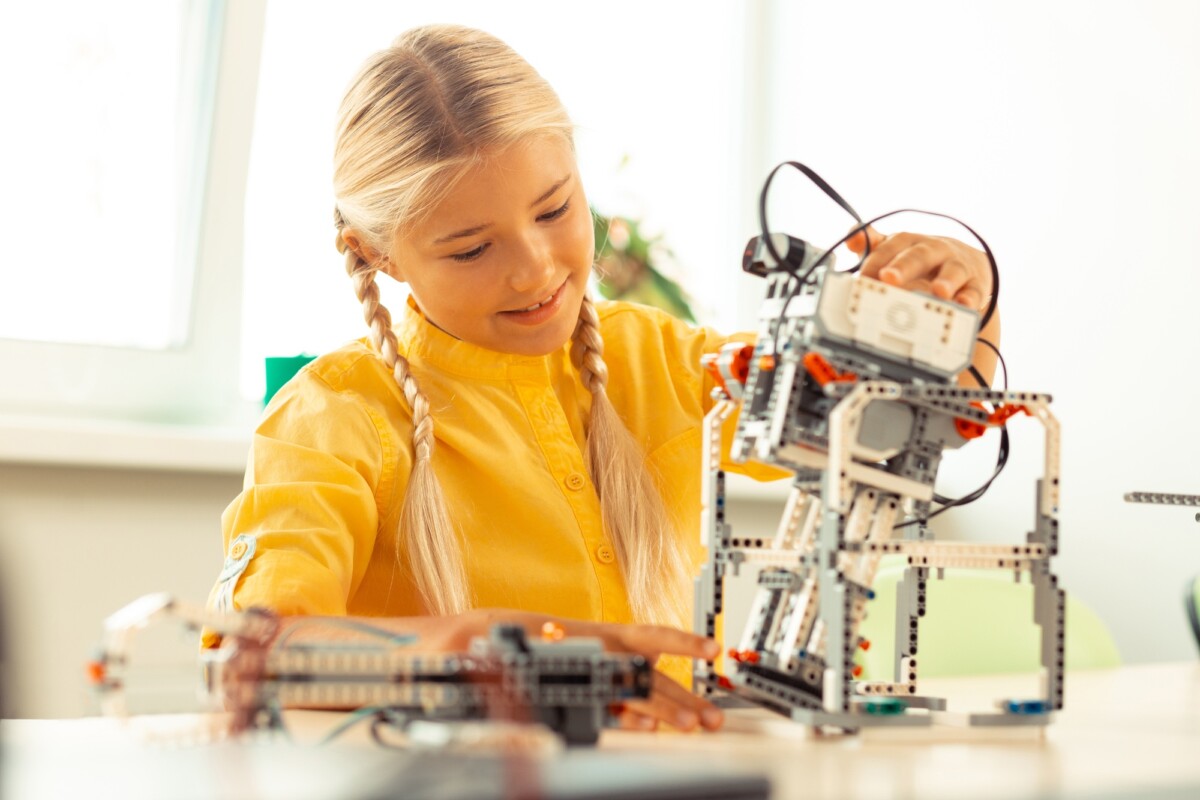
In today’s fast-paced world, technology is reshaping every aspect of our lives, including preschool education. The integration of technology in preschool is not just a trend; it’s a transformative approach that enhances learning experiences for young children. By incorporating digital tools into the toddler curriculum, educators can create engaging and interactive environments that foster curiosity and creativity.
Enhancing Engagement
Technology in preschool captivates children’s attention like never before. Interactive apps and educational games make learning fun, allowing toddlers to explore concepts in science and early childhood education through play. This engagement is crucial for developing a love for learning from an early age.
Personalized Learning Experiences
With technology, educators can tailor the toddler curriculum to meet individual needs. Programs can adapt to each child’s learning pace, ensuring that every child receives the support they need. This personalized approach not only boosts confidence but also enhances overall learning outcomes.
Start your journey to a brighter future—Enroll now!
How Interactive Tools Enhance Early Childhood Education
In today’s fast-paced world, technology is transforming how we approach education, especially in preschool settings. The integration of technology in preschool is not just about gadgets; it’s about enhancing the learning experience for young children. By incorporating interactive tools, educators can create a dynamic toddler curriculum that fosters engagement and curiosity, laying a strong foundation for lifelong learning.
Interactive tools, such as tablets and educational apps, provide a hands-on approach to learning. These resources allow children to explore concepts in science and early childhood education through play. For instance, apps that teach basic math or reading skills can adapt to a child’s learning pace, making education both fun and effective.
Benefits of Technology in Preschool
- Engagement: Interactive tools capture children’s attention, making learning enjoyable.
- Personalized Learning: Technology allows for tailored experiences, catering to individual learning styles.
- Skill Development: Children develop critical thinking and problem-solving skills through interactive play.
By embracing technology in preschool, educators can create a rich learning environment that prepares children for future academic success.
Are Tablets and Apps the Future of Preschool Learning?
In today’s digital age, technology is transforming preschool learning in unprecedented ways. With the integration of tablets and educational apps, young learners are experiencing a shift in how they engage with their toddler curriculum. This evolution not only enhances their learning experience but also prepares them for a tech-driven world.
Engaging Learning Tools
Tablets and apps provide interactive platforms that captivate preschoolers’ attention. These tools often include games and activities that promote critical thinking and problem-solving skills, essential components of science and early childhood education. By making learning fun, children are more likely to retain information and develop a love for learning.
Personalized Learning Experiences
One of the significant advantages of technology in preschool is the ability to tailor learning experiences to individual needs. Apps can adapt to a child’s learning pace, offering challenges that match their skill level. This personalized approach ensures that every child can thrive in their educational journey, fostering a strong foundation for future learning.
The Role of Virtual Reality in Engaging Young Minds
In today’s digital age, technology is revolutionizing preschool learning in ways we never imagined. By integrating innovative tools into the toddler curriculum, educators can create immersive experiences that captivate young minds. One of the most exciting advancements is the use of virtual reality (VR), which offers a unique approach to science and early childhood education.
The Power of Virtual Reality
Virtual reality allows preschoolers to explore new worlds without leaving the classroom. Imagine a child walking through a virtual rainforest, discovering animals and plants while learning about ecosystems. This hands-on experience enhances engagement and retention, making learning fun and effective.
Benefits of VR in Preschool Learning
- Enhanced Engagement: VR captures children’s attention, making lessons memorable.
- Interactive Learning: Kids can interact with their environment, fostering curiosity and exploration.
- Safe Exploration: Virtual environments allow for risk-free adventures, encouraging boldness in learning.
By incorporating technology in preschool, educators can tailor the toddler curriculum to meet diverse learning styles, ensuring that every child thrives in their educational journey. Virtual reality is just one example of how technology is transforming early childhood education, paving the way for a brighter future.
Personalized Learning: Tailoring Education with Technology in Preschool
Technology is transforming preschool learning by making education more personalized and engaging. With the integration of digital tools, educators can tailor the toddler curriculum to meet the unique needs of each child. This approach not only enhances learning outcomes but also fosters a love for learning from an early age.
Adaptive Learning Tools
- Interactive Apps: These tools adjust to a child’s learning pace, providing challenges that match their skill level.
- Data-Driven Insights: Teachers can track progress and adapt lessons based on individual performance, ensuring that each child receives the support they need.
Engaging Learning Experiences
Technology in preschool introduces fun, interactive methods for exploring science and early childhood concepts. Children can engage with virtual experiments or educational games that stimulate curiosity and creativity, making learning a delightful adventure. By leveraging technology, preschools can create a dynamic learning environment that not only supports academic growth but also nurtures social and emotional development. This personalized approach ensures that every child is equipped with the foundational skills necessary for future success.
Start your journey to a brighter future—Enroll now!
How Educators Are Adapting to Technology in the Classroom
In today’s digital age, technology is reshaping how educators approach preschool learning. By integrating technology in preschool settings, teachers can enhance engagement and tailor learning experiences to meet the diverse needs of young learners. This transformation is crucial as it prepares children for a future where digital literacy is essential.
Embracing Digital Tools
Educators are increasingly incorporating tablets, interactive whiteboards, and educational apps into the toddler curriculum. These tools not only make learning fun but also provide instant feedback, allowing children to grasp concepts at their own pace.
Personalized Learning Experiences
With technology, teachers can create personalized learning paths. For instance, apps can adapt to a child’s learning speed, ensuring that each toddler receives the right level of challenge. This individualized approach is particularly beneficial in science and early childhood education, where curiosity drives learning.
Collaborative Learning Opportunities
Technology also fosters collaboration among preschoolers. Through group projects using digital platforms, children learn teamwork and communication skills early on. This collaborative environment is essential for developing social skills and preparing them for future educational settings.
Read Also: How Is Science Integrated into Early Childhood Education?
What Parents Need to Know About Technology in Preschool
In today’s digital age, technology is transforming preschool learning in remarkable ways. Parents need to understand how these advancements can enhance their child’s education. Integrating technology in preschool not only makes learning more engaging but also prepares children for a tech-driven world. Let’s explore how this shift is shaping toddler curriculum and fostering a love for science and early childhood education.
Benefits of Technology in Preschool
- Interactive Learning: Technology allows for interactive lessons that captivate young minds. Educational apps and games make learning fun and memorable.
- Personalized Learning: With technology, educators can tailor lessons to meet individual needs, ensuring that every child progresses at their own pace.
- Access to Resources: Online platforms provide a wealth of resources, from videos to virtual field trips, enriching the preschool experience.
Preparing for the Future
As children engage with technology in preschool, they develop essential skills such as critical thinking and problem-solving. These foundational skills are crucial for their future academic success. Moreover, early exposure to science and early childhood concepts through tech tools can spark curiosity and a lifelong love for learning. Parents should embrace this evolution, ensuring their toddlers benefit from a balanced curriculum that includes both traditional and technological elements.
Discover How DegreeOnline.Education Supports Innovative Learning Solutions
In today’s fast-paced world, technology is transforming every aspect of our lives, including preschool education. Understanding how technology in preschool enhances learning experiences is crucial for parents and educators alike. By integrating innovative tools into the toddler curriculum, we can foster a love for learning from an early age, setting the foundation for future academic success.
Engaging Learning Tools
- Interactive Apps: These applications make learning fun and engaging for toddlers, helping them grasp concepts through play.
- Educational Games: Games designed for preschoolers can teach essential skills in math, literacy, and science while keeping them entertained.
Personalized Learning Experiences
- Adaptive Learning Technologies: These tools adjust to each child’s learning pace, ensuring that every toddler receives the support they need.
- Data-Driven Insights: Educators can track progress and tailor the curriculum to meet individual needs, enhancing the overall learning experience.
By embracing technology in preschool, we can create a dynamic learning environment that not only captivates young minds but also prepares them for a future where digital literacy is essential. At DegreeOnline.Education, we are committed to providing innovative learning solutions that integrate science and early childhood education, ensuring that every child has the opportunity to thrive.
Start your journey to a brighter future—Enroll now!
FAQs
-
Is technology appropriate for preschoolers?
Yes, when used in moderation and for educational purposes, technology can support learning and development in preschoolers. -
What are the benefits of using technology in preschool education?
It enhances early literacy, problem-solving skills, creativity, and digital literacy while making learning engaging. -
How much screen time is recommended for preschoolers?
The American Academy of Pediatrics (AAP) recommends no more than 1 hour of high-quality screen time per day for children aged 2-5 years. -
What types of technology are best for preschoolers?
Interactive and educational apps, age-appropriate websites, digital storytelling, and simple coding games are beneficial. -
Should preschool classrooms include technology?
When used as a tool to complement hands-on learning, technology can support early education without replacing traditional play-based learning.





